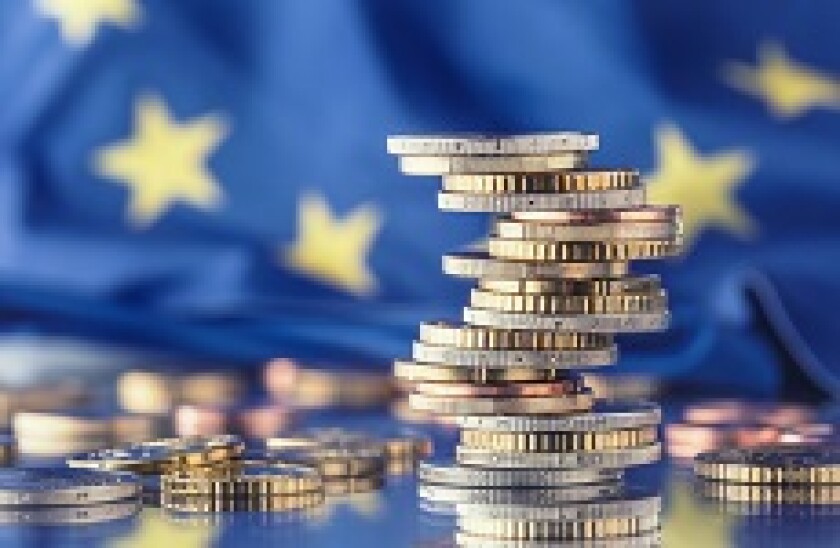The Covid-19 pandemic has claimed more lives in Italy than in China. As of Friday morning Asia time, the European country reported a total of 3,405 deaths, surpassing the Mainland’s 3,248. This was despite fewer infections in Italy when compared to China, at 35,713 versus 81,174.
The number of people infected in Europe combined also exceeded that in China for the first time earlier this week.
The uptick in Europe came as the Mainland reported zero new local infections on Thursday and Friday, the first time since the outbreak began. In Hubei province, where the pandemic originated, there was no new case either domestically or from abroad on Thursday.
*
The Asian Development Bank announced a $6.5bn initial package on Wednesday to help its developing member countries respond to the pandemic.
The supranational had already provided over $225m since February 7 to help governments and businesses in these countries meet their urgent needs, it said.
*
The World Bank Group also said this week that it will increase the size of its fast-track financing package to $14bn from the previously announced $12bn. The additional $2bn will come entirely from International Finance Corp (IFC), the group’s private sector arm. The IFC had previously committed $6bn to the package.
*
The People’s Bank of China (PBoC) kept the loan prime rate (LPR) unchanged on Friday morning. The one year LPR stands at 4.05% and the five year remains 4.75%.
The move was not entirely surprising given the central bank left the medium-term lending facilities rate unchanged on Monday. But while some analysts said the LPR move was unexpected, given the US Federal Reserve’s two emergency rate cuts totalling 150bp in March so far, it has offered some respite to the market.
“Given the recent aggressive monetary easing across major central banks, PBoC’s steady hands today has come as a relief because it suggests the Covid-19 pandemic may now be under control in the world’s second largest economy,” Ho Woei Chen, an economist at UOB, wrote in a Friday note.
*
Chinese banks had Rmb3.3tr ($466bn) of outstanding non-performing loans (NPL) by the end of February, according to data published by the China Banking and Insurance Regulatory Commission (CBIRC) on Tuesday. The NPL ratio reached 2.08%, which was 0.05 percentage point higher than in January.
“Special-mention loans”, a classification used to describe loans that are potentially at risk of becoming non-performing, reached Rmb5.8tr at the end of February. The ratio of special-mention loans increased by 0.17 percentage point. The increase was mainly due to Covid-19’s pressure on individuals paying back mortgage loans and credit loans, the CBIRC said.
*
US president Donald Trump used the term “Chinese virus” to refer to Covid-19 in a tweet on Monday, before using it again in a Tuesday tweet. In a daily White House Covid-19 briefing on Wednesday, Trump said he was pointing to the fact that the illness was first detected in China.
“It’s not racist at all,” Trump told reporters. “It comes from China, that’s why. I want to be accurate.”
He added he was attaching “China” to the virus because Zhao Lijian, a Chinese foreign ministry spokesman, suggested the virus may have originated from the “US army” in a tweet on March 12.
But Geng Shuang, another spokesperson at the Chinese foreign ministry, retaliated in a Wednesday press conference. “The World Health Organization and the international community oppose stigmatising linkage between the virus and specific countries and regions. We urge the US to respect facts and the fair judgment of the international community, correct its mistake and stop its slanders against China at once.”
*
China has cancelled the press credentials of US journalists working for the New York Times, the Wall Street Journal and the Washington Post, banning them from news reporting in the Mainland, Hong Kong and Macau. The reporters were ordered to return their media passes within 10 business days, the Ministry of Foreign Affairs said on Wednesday.
The three newspapers, together with the Voice of America and Time magazine, were also told to submit to the authorities detailed information about their staff, finances, operations and properties in China.
Last month, China expelled three reporters from the Journal from the country after the newspaper published an opinion piece entitled 'China is the Real Sick Man of Asia'. In response to that, the Trump administration announced a reduction in headcount of employees at four Chinese media outlets in the US earlier this month. The four were among five firms labelled as “foreign missions” of the Chinese government by the US.
*
For the first time in 20 years, China will set up a new national asset management company called China Galaxy Asset Management Co, the CBIRC said. The firm was formerly known as Jiantou Citic Asset Management Co. It is 70%-owned by Central Huijin Investment, the investment arm of China’s sovereign wealth fund, with Citic Securities holding the remaining 30%.
There are currently four national bad debt managers in China: China Cinda Asset Management Co, China Great Wall Asset Management Co, China Huarong Asset Management Co and China Orient Asset Management.
*
The State Council met on Tuesday. Chinese premier Li Keqiang, who chaired the meeting, said that stabilising employment will be the top priority and the government should encourage people to go back to work as soon as possible.
*
The Ministry of Industry and Information Technology announced a number of measures to support small and medium-sized enterprises during the Covid-19 pandemic. These include setting up Rmb300bn of special purpose re-lending loans where the central government will pay half of the interest, other financial aids, lowering taxes and extending the tax reporting period.
*
In February, the renminbi overtook the Canadian dollar to become the fifth most used currency in terms of global payments by value, taking up a 2.11% share, according to Swift’s monthly renminbi tracker.

